The Complete Guide to Worldschooling in 2025: Everything Parents Need to Know
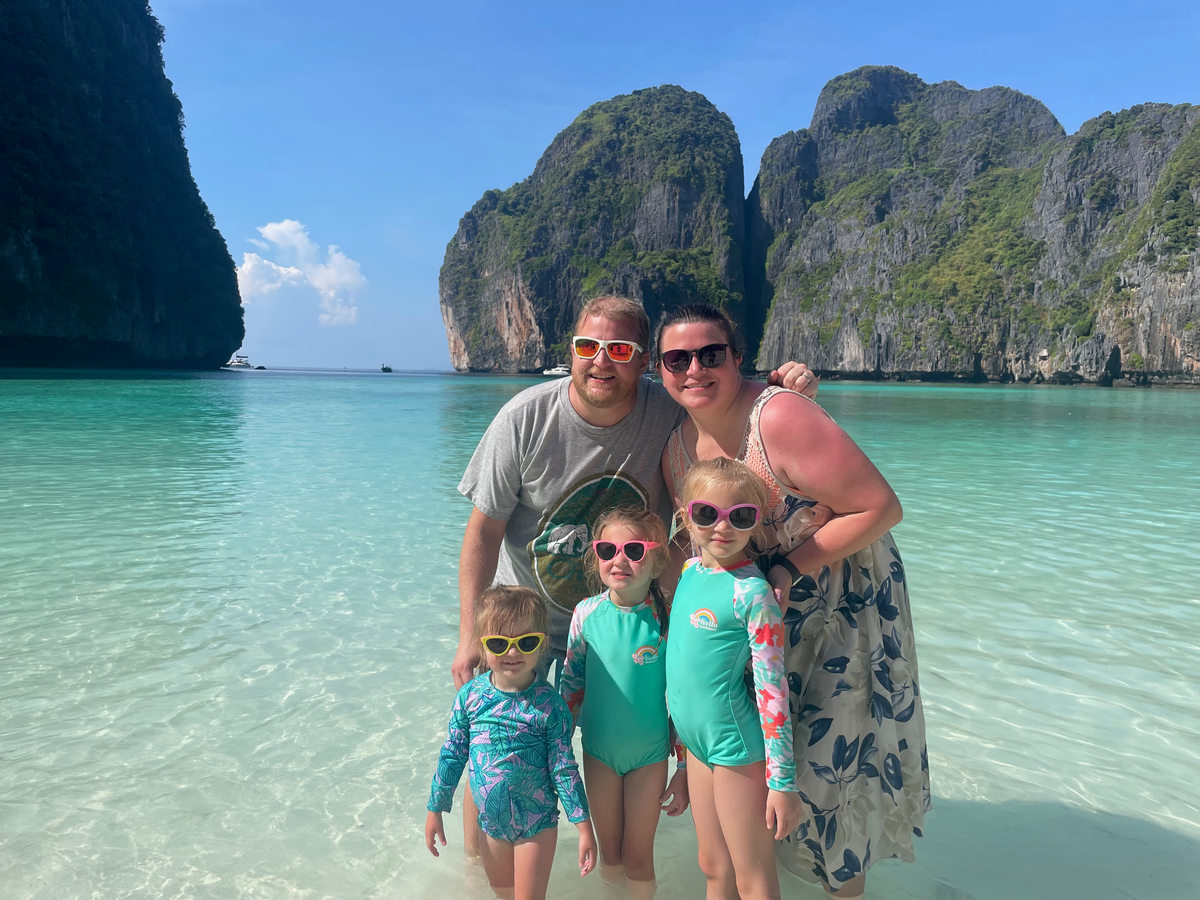
Worldschooling has exploded in popularity over the past few years, but what exactly does it mean, and is it right for your family? After over three years of traveling full-time with our three daughters across 20+ countries, we've learned everything there is to know about this educational approach. Whether you're curious about the legalities, wondering about the best age to start, or questioning if worldschooled kids turn out "weird," we're covering it all.
What Does Worldschooling Mean?
Worldschooling is the practice of combining travel with education, where families use the world as their classroom while maintaining their children's learning through homeschooling, online education, or unschooling methods. Rather than being confined to a traditional classroom, worldschooling families learn through direct cultural immersion, historical site visits, language exposure, and hands-on experiences that simply can't be replicated in a conventional school setting.
Our family has practiced worldschooling since May 2022, when we sold our house and everything we owned to travel full-time. Our daughters - Lily (9), Cora (8), and Harper (5) - have learned math while calculating currency exchanges in Japanese yen, studied history while walking through actual Roman ruins, and picked up language skills through daily interactions with locals across four continents. You can see exactly what this looks like in practice in our Tokyo Worldschool Popup Experience where we joined 25 other families for structured learning activities combined with cultural immersion.
The key difference between worldschooling and traditional homeschooling is that worldschooling families intentionally use travel and cultural immersion as primary educational tools. We're not just homeschooling while traveling; we're using travel itself as the curriculum.
Is Worldschooling Legal?
Yes, worldschooling is completely legal in most countries, but the legalities depend on your home country's homeschooling laws. Since worldschooling is essentially homeschooling while traveling, you must comply with your home jurisdiction's educational requirements.
For US Families:
- Homeschooling is legal in all 50 states, though requirements vary significantly
- Some states require annual testing or portfolio reviews
- Record-keeping of educational activities is essential
- Consider establishing residency in homeschool-friendly states like Texas, Florida, or Nevada before departing
For International Families:
- Research your home country's homeschooling regulations thoroughly
- Some countries like Germany have strict compulsory school attendance laws
- Others like Australia and Canada have relatively flexible homeschooling frameworks
- Consider legal consultation before committing to long-term travel
Documentation Tips:
- Maintain detailed educational records and portfolios
- Use established curriculum providers for credibility
- Consider enrolling in accredited online schools for transcript purposes
- Document cultural and educational experiences with photos and journals
We maintain legal homeschool status through our Indiana residency, where requirements are minimal but we still keep detailed records of our daughters' educational progress using a combination of formal curriculum and experiential learning documentation.
What Is the Best Age to Start Worldschooling?
The optimal age for starting worldschooling depends on your family's circumstances, but we believe ages 5-12 represent the sweet spot for maximum impact and minimum educational disruption.
Ages 3-6 (Early Childhood):
- Pros: Maximum flexibility, no formal academic pressure, strong language acquisition window
- Cons: High maintenance while traveling, limited educational retention, challenging logistics
- Best for: Families prioritizing cultural exposure over academic rigor
Ages 7-12 (Elementary Years):
- Pros: Curious and adaptable, strong memory formation, manageable educational requirements
- Cons: May miss some social milestones, requires structured learning approach
- Best for: Most worldschooling families, optimal balance of benefits and manageability
Ages 13-18 (Teenage Years):
- Pros: Can appreciate cultural nuances, contribute to trip planning, potentially valuable for college applications
- Cons: Social needs more complex, academic requirements intensive, resistance to family travel
- Best for: Motivated teens or families starting with established travel routines
Our daughters were 6, 4, and 2 when we started, which proved nearly ideal. They were old enough to remember experiences but young enough to adapt quickly to constant change. Harper's early years on the road shaped her into our most adaptable traveler, while our older girls developed incredible cultural awareness and adaptability skills.
The crucial factor isn't age alone but your family's readiness for the lifestyle challenges that come with constant travel and alternative education.
What Is a World School?
A world school typically refers to either international schools that follow globally recognized curricula or educational programs designed specifically for globally mobile families. However, in worldschooling contexts, "world school" often describes the comprehensive educational approach that uses global experiences as the foundation for learning.
Traditional World Schools:
- International Baccalaureate (IB) programs
- International schools following British, American, or other national curricula
- Schools designed for expatriate and globally mobile families
- Often located in major international cities
Worldschooling "World School" Concept:
- The entire world serves as the classroom
- Cultural immersion provides social studies lessons
- Historical sites become history classrooms
- Foreign language acquisition through daily necessity
- Geography learned through direct exploration
- Science discovered through diverse ecosystems and environments
Online World Schools for Worldschoolers:
- Khan Academy World School (free, self-paced)
- Time4Learning (comprehensive online curriculum)
- Connections Academy (virtual public school option)
- Reading Eggs for early literacy (use our experience with Reading Eggs for foundational learning)
We've created our own "world school" curriculum combining online resources, traditional textbooks, and experiential learning. When we studied ancient Rome, we actually walked through the Colosseum. When learning about Buddhism, we visited active temples in Thailand and discussed philosophy with monks.
How Many Hours a Day Is Recommended for Homeschooling?
Formal homeschooling typically requires 3-6 hours of focused academic work per day, depending on the child's age and your state's requirements. However, worldschooling often involves significantly more "learning hours" when you include cultural immersion and experiential education.
Traditional Homeschool Time Requirements:
- Ages 5-7: 1-3 hours of formal instruction
- Ages 8-10: 3-4 hours of structured learning
- Ages 11-14: 4-5 hours of academic work
- Ages 15-18: 5-7 hours including advanced coursework
Worldschooling Time Reality:
- 2-3 hours focused academic work (math, language arts, science)
- 4-6 hours experiential learning (cultural activities, museums, exploration)
- Ongoing informal learning through daily life (language practice, cultural observation, problem-solving)
Our Flexible Daily Rhythm (No Two Days Are Alike): We don't follow a rigid schedule because worldschooling means adapting to each location's rhythm and opportunities. However, we do have a loose pattern that works for us:
- Morning academics after breakfast (usually 1-2 hours of focused work)
- Lunch together as a family
- Afternoon activities - often swimming at our accommodation or finding a local park
- Everything else varies based on where we are and what's available
The beauty of worldschooling is that every day looks different. Some days we're exploring temples in Thailand, other days we're on trains across Europe, and sometimes we just need a quiet day by the pool. The flexibility to adapt our "classroom" to our environment and energy levels is what makes this lifestyle work for our family.
The beauty of worldschooling lies in the integration of learning throughout daily life. When our daughters bargain at markets in Thailand, they're practicing math and cultural studies simultaneously. When they order food in broken Spanish, they're engaged in real-world language learning that's far more effective than traditional classroom instruction.
Remember, many worldschooling families follow a more relaxed "unschooling" approach, where learning happens organically through experiences rather than structured lesson plans.
What Are Some Worldschool Family Channels?
The worldschooling community on YouTube has grown tremendously, offering inspiration, practical advice, and virtual connection for families considering or living this lifestyle. Here are some of the most valuable channels for worldschooling families:
Our Channel - Adam and Linds - The Worldschool Family:

- 31,000+ subscribers following our journey across 20+ countries
- Practical tips for traveling with three kids
- What is worldschooling? - Our short explanation of the lifestyle
- Tokyo Worldschool Popup Experience - See how worldschool communities work in practice
Authentic Worldschooling Family Channels:
- The Backpacking Family: Pete, Emma, and their boys travel full-time as former teachers who now worldschool their children. They provide excellent educational content and practical worldschooling advice.
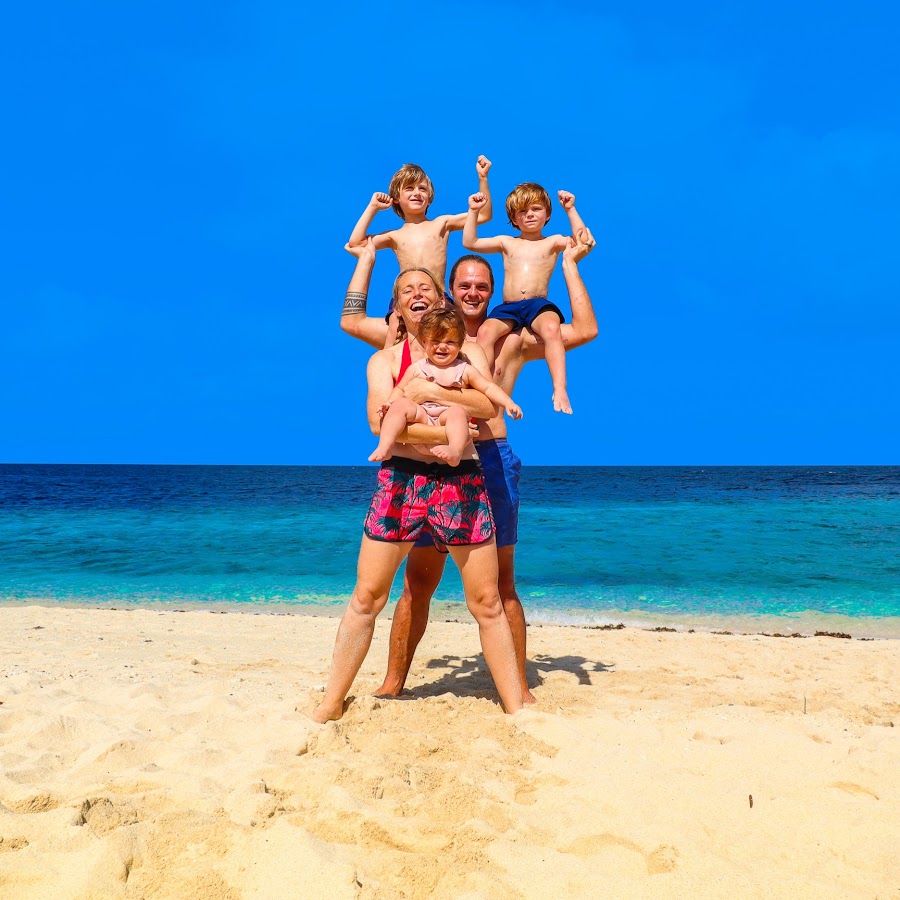
- The Hutchinsons: A genuine worldschooling family sharing their authentic travel and education experiences.
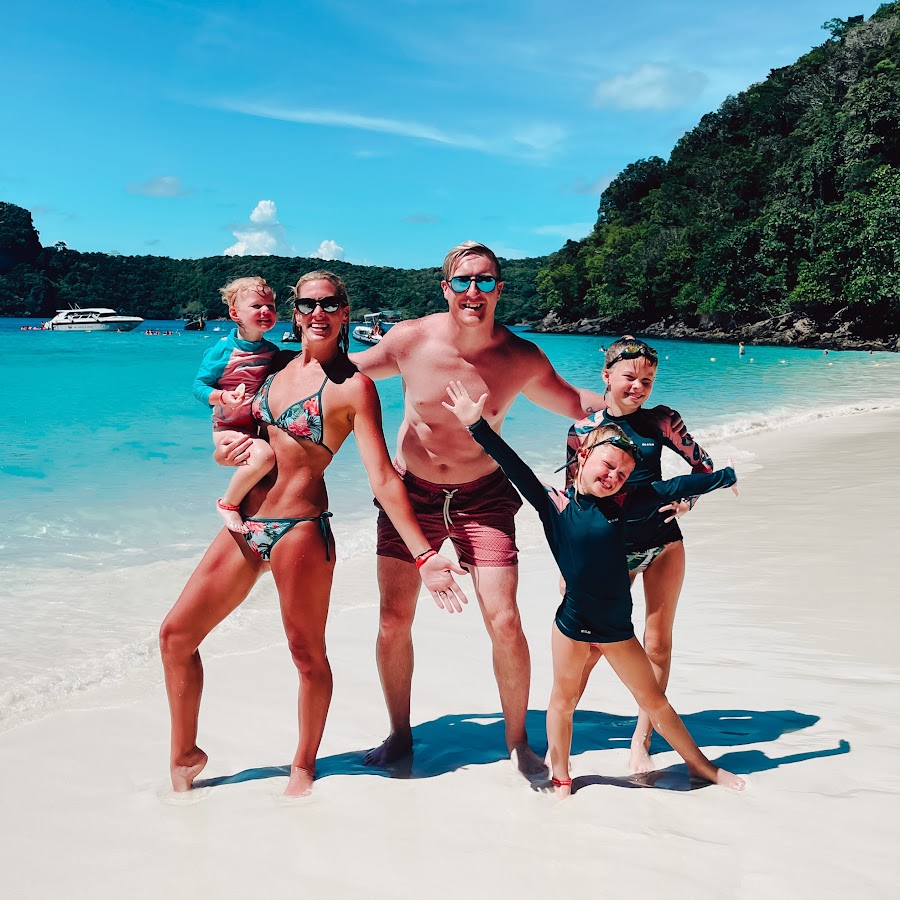
- Our Tiny Adventure: Real worldschooling family documenting their journey and educational approaches.
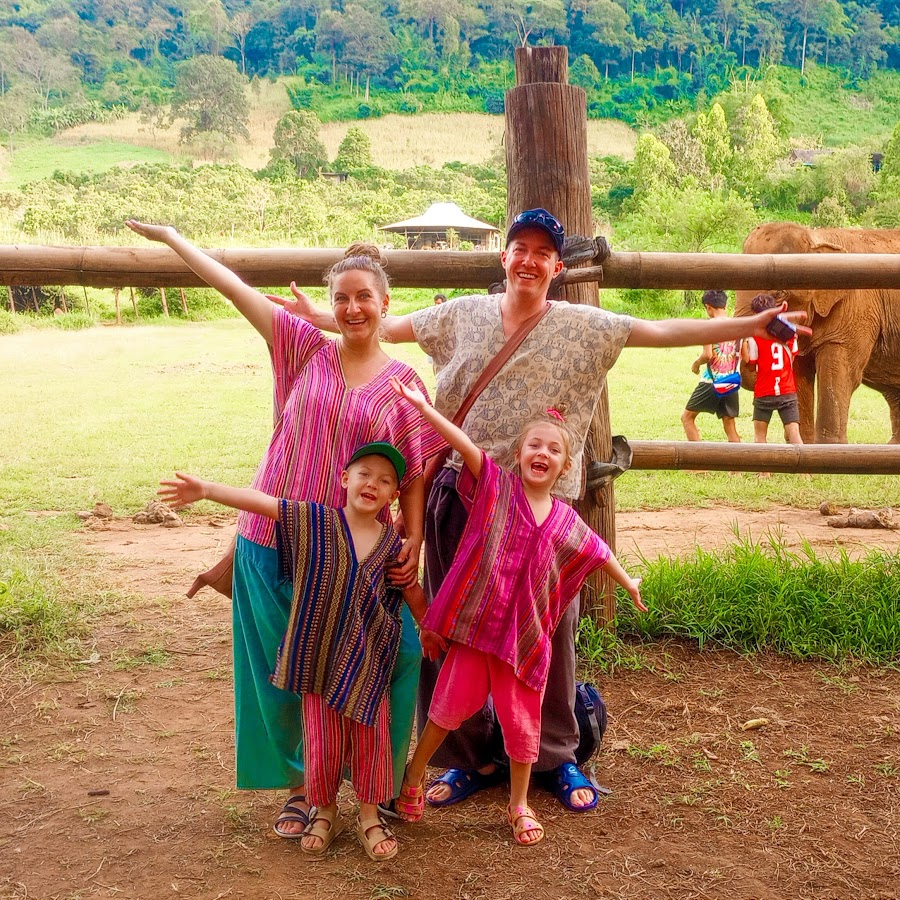
- Going Going Back Back: Another authentic family travel channel with worldschooling insights.
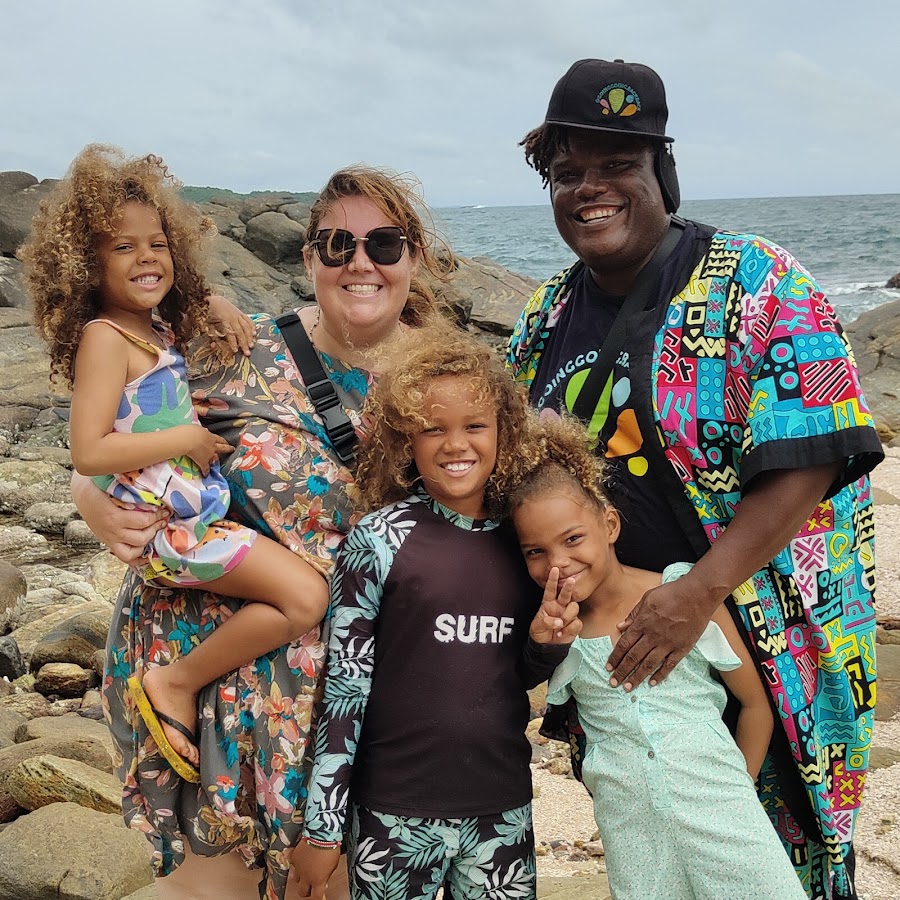
These families actually live the worldschooling lifestyle full-time and provide genuine insights into the challenges and rewards of educating children while traveling. You'll find our TGV train journey across France perfectly captures both the chaos and magic that makes worldschooling so memorable.
Educational Content for Worldschoolers:
- Crash Course: Excellent for supplementing traditional subjects
- Khan Academy: Free comprehensive curriculum support
- National Geographic Kids: Cultural and science education
- TED-Ed: Short, engaging educational videos perfect for worldschoolers
Finding Community:
- WorldSchooling Facebook groups (10,000+ active members)
- Instagram hashtag #worldschooling connects families globally
- Local worldschooling meetups in popular family destinations
- Worldschooling popup events in cities like Lisbon, Mexico City, and Bangkok
We've connected with dozens of worldschooling families through social media and in-person meetups. These connections have led to lasting friendships, travel companions, and invaluable support networks. The community aspect of worldschooling is often as valuable as the educational benefits. Watch our Bangkok experience to see how we built community during our first extended stay.
How Do I Start Worldschooling?
Starting your worldschooling journey requires careful planning, legal preparation, and mindset adjustment. Here's our step-by-step guide based on our experience and mistakes we've learned from:
Step 1: Legal and Educational Foundation
- Research your home state/country's homeschooling requirements
- Choose curriculum approach (structured online school, eclectic homeschool, or unschooling)
- Establish educational record-keeping systems
- Consider establishing residency in homeschool-friendly jurisdictions
Recommended Educational Resources:
- Outschool with code ADAMANDLINDS30 for $30 toward first class - excellent for specialized subjects
- Khan Academy for comprehensive free curriculum
- Time4Learning for structured online learning
- Reading Eggs for early literacy development
- Local library resources for books and digital access
Step 2: Financial Planning
- Calculate realistic travel budgets (we spend $3,000-5,000/month for family of five)
- Build emergency funds (minimum 6 months expenses)
- Establish location-independent income streams
- Consider slow travel to reduce accommodation costs
Money Management Tools:
- Greenlight for teaching kids financial literacy while traveling
- International bank accounts for easier money access
- Travel rewards credit cards for accommodation savings
Step 3: Technology and Communication Setup
- Research international data plans and connectivity options
- Set up VPN services for accessing home-country content
- Download offline educational apps and content
- Plan for device backups and replacements
Connectivity Solutions:
- Holafly eSIM with code ADAMANDLINDS - We earn 10% and you save 5% on global data plans
- VPN services for accessing educational content from your home country
- Backup devices and cloud storage for educational materials
Step 4: Start Small and Test
- Take extended trips before committing to full-time travel
- Try different accommodations (Airbnb, hotels, hostels)
- Test your educational systems while traveling
- Evaluate family dynamics during extended travel periods
Step 5: Choose Initial Destinations Wisely
- Start with English-speaking countries for easier transition
- Consider family-friendly destinations with good infrastructure
- Plan for longer stays (2+ weeks minimum) to avoid constant movement
- Research visa requirements and educational resources at destinations
Beginner-Friendly Destinations:
- Southeast Asia (Thailand, Malaysia, Singapore) - affordable, family-friendly, good infrastructure
- Portugal/Spain - excellent weather, reasonable costs, welcoming to families
- Mexico - proximity to US, affordable, rich cultural learning opportunities
- Eastern Europe - lower costs, rich history, good transportation networks
Step 6: Build Community Connections
- Join worldschooling Facebook groups before departure
- Connect with families in your target destinations
- Plan to attend worldschooling meetups or popup events
- Share your journey through social media to build your own network
The key to successful worldschooling startup is gradual transition rather than dramatic lifestyle change. We recommend spending 6-12 months planning and testing before committing to full-time travel.
Is Worldschooling Bad for Kids?
This question deserves an honest, nuanced answer based on both research and our personal experience. Worldschooling isn't inherently good or bad for children, but its success depends heavily on family dynamics, implementation approach, and individual child personalities.
Potential Benefits We've Observed:
Educational Advantages:
- Enhanced cultural awareness and global perspective
- Accelerated language acquisition through immersion
- Hands-on learning that traditional schools can't replicate
- Development of adaptability and problem-solving skills
- Self-directed learning and intrinsic motivation
Personal Development:
- Increased confidence navigating new situations
- Reduced materialism and appreciation for experiences over possessions
- Strong family bonds through shared adventures
- Resilience and flexibility in facing challenges
- Open-mindedness toward different cultures and ways of life
Real-World Skills:
- Navigation and geography skills through actual travel
- Currency and basic math through daily transactions
- Communication skills across language barriers
- Planning and logistics through trip involvement
Potential Challenges and Concerns:
Social Development:
- Limited consistent peer relationships
- Missing traditional school social milestones
- Potential isolation from extended family and friends
- Different social skills development compared to traditionally schooled peers
Educational Gaps:
- Possible gaps in formal academic subjects without careful planning
- Challenges with standardized testing preparation
- Difficulty accessing specialized programs (advanced math, sports, music)
- Potential issues with college preparation and transcripts
Family Dynamics:
- Intense family togetherness can create stress
- Limited personal space and privacy
- Parents bear full responsibility for education and socialization
- Financial pressure and uncertainty
Practical Concerns:
- Healthcare access in remote locations
- Emergency planning complexity
- Constant adaptation fatigue
- Technology dependence for education and communication
Making Worldschooling Work for Kids:
Keys to Success:
- Maintain some routine and structure despite constant change
- Prioritize regular connection with friends and family back home
- Ensure children have input into travel decisions when age-appropriate
- Balance educational activities with downtime and free play
- Create opportunities for peer interaction through worldschooling communities
Warning Signs to Watch:
- Persistent homesickness or depression
- Academic regression despite educational efforts
- Social withdrawal or extreme difficulty making connections
- Health issues related to constant travel stress
- Family conflict that increases rather than decreases over time
Our Honest Assessment:
After over three years of worldschooling, our daughters have developed remarkable adaptability, cultural awareness, and confidence. They approach new situations with enthusiasm rather than fear, communicate effectively across language barriers, and possess geographic and cultural knowledge that surpasses most adults. You can see this confidence in action in our Vietnam market adventure where the girls navigate language barriers while shopping for ingredients.
However, we've also noticed they sometimes struggle with traditional classroom settings during brief returns home, miss consistent friendships, and occasionally express longing for a "normal" house and neighborhood. We work actively to address these challenges through regular video calls with friends, maintaining some possessions in storage, and ensuring they spend quality time with extended family.
The truth is that worldschooling, like any educational choice, involves trade-offs. Children gain some experiences and skills while potentially missing others. The key is honest evaluation of your specific family's needs, personalities, and goals.
Are Worldschool Kids Weird?
The short answer? Maybe a little, but in mostly wonderful ways. After over three years of worldschooling and connecting with dozens of other worldschooling families, we've observed that our kids develop differently than their traditionally-schooled peers, but "weird" might not be the right word. Check out our family dynamics in Tokyo to see how our girls interact with each other and new environments compared to traditionally-schooled children.
How Worldschool Kids Are Different:
Cultural Fluency: Our daughters code-switch between cultures with remarkable ease. They bow when greeting people in Japan, remove their shoes without being asked in Asian homes, and understand that "normal" varies dramatically depending on location. This cultural fluency can seem unusual to children who've grown up in a single cultural context.
Geographic Awareness: When other kids struggle to locate their own state on a map, our girls can point out multiple countries they've visited, explain time zones, and understand how geography affects climate and culture. This knowledge base can make them seem advanced or different from peers.
Language Exposure: They pick up phrases in multiple languages naturally and understand that English isn't universal. They're comfortable communicating through gestures, simple phrases, and creative problem-solving when language barriers exist.
Adaptability: Traditional children might struggle with changes to routine, while worldschool kids often thrive in new environments. They adapt to different foods, sleeping arrangements, and daily schedules with minimal complaint.
Material Perspectives: Growing up with minimal possessions has changed their relationship with "stuff." They value experiences over objects and don't understand the appeal of accumulating toys or clothes they rarely use.
Potential Social Adjustments:
Conversation Topics: When peers discuss TV shows, video games, or local events, worldschool kids might reference temples in Thailand or train systems in Japan instead. Their conversation topics can seem exotic or unrelatable to traditionally-raised children.
Social Norms: They might not understand playground hierarchies, school social dynamics, or age-appropriate cultural references. What's considered "cool" or "normal" in traditional school settings might be foreign concepts.
Academic Differences: Their learning might be ahead in some areas (geography, cultural studies, languages) but behind in others (standardized test preparation, specific curriculum sequences). This uneven development can seem unusual in traditional educational settings.
The Reality Check:
Positive "Weird":
- More comfortable with diversity and change
- Less judgmental about different lifestyles
- More independent and confident in new situations
- Better at entertaining themselves without structured activities
- More aware of global issues and perspectives
Challenging "Weird":
- May struggle with traditional classroom expectations
- Might seem restless or bored with routine activities
- Could have difficulty relating to peers with limited travel experience
- May resist settling into traditional neighborhood/school patterns
- Might express preferences for travel over stability
Integration Strategies:
For Social Success:
- Encourage participation in local activities when temporarily settled
- Maintain friendships through technology and regular communication
- Practice traditional school social skills during family visits
- Help them find common ground with peers beyond travel experiences
- Teach them when to share travel stories and when to focus on other topics
For Academic Integration:
- Supplement experiential learning with traditional academic skills
- Practice standardized test formats when planning future school enrollment
- Maintain grade-level expectations in core subjects
- Document learning in formats that traditional schools understand
- Consider gradual reintegration rather than sudden enrollment
Our Family's Experience:
Our daughters are definitely different from their traditionally-schooled cousins and friends, but we consider most of these differences positive. They're more confident, adaptable, and culturally aware. They solve problems creatively and approach new situations with curiosity rather than anxiety.
Yes, they sometimes struggle to relate to peers who've never left their home state, and they occasionally seem restless in traditional settings. But they've gained perspective, empathy, and life skills that we believe will serve them well throughout their lives.
The question isn't whether worldschool kids are "weird," but whether the differences align with your family's values and goals. If you value cultural awareness, adaptability, and global perspective over traditional social conformity, then worldschooling's "weirdness" might be exactly what you're seeking.
Creating Your Worldschooling Journey
Worldschooling represents a significant lifestyle choice that can provide incredible educational and personal benefits for the right families. It's not a perfect solution for everyone, but for families willing to embrace uncertainty, prioritize experiences over possessions, and commit to intentional education, it can be transformative.
The key to successful worldschooling lies in honest self-assessment, careful planning, and flexibility to adapt your approach as you learn what works for your family. Start small, connect with the community, and remember that worldschooling success is measured not by traditional metrics but by your family's growth, happiness, and achievement of your unique educational goals.
Whether you decide to worldschool for six months, several years, or permanently, the experience will challenge assumptions, broaden perspectives, and create memories that last a lifetime. Just remember to pack light, stay flexible, and keep your sense of humor intact - as we learned during our Queen Mary 2 crossing, sometimes the most challenging moments become the best stories. You can watch our honest Q&A about the lifestyle where we discuss both the challenges and rewards of this unconventional approach to education.
Ready to start planning your own worldschooling adventure? Connect with Lindsay at [email protected] for personalized travel planning that considers your educational goals and family needs.
Resources for Getting Started
Educational Platforms:
- Outschool - Use code ADAMANDLINDS30 for $30 toward your first class
- Khan Academy - Free comprehensive curriculum
- Time4Learning - Structured online learning platform
Travel Planning:
- Klook with code ADAMANDLINDS for activity bookings
- Hotels.com for accommodation deals
- GetYourGuide for family-friendly tours and activities
Connectivity:
- Holafly - Global eSIM with code ADAMANDLINDS (we earn 10%, you save 5%)
Community:
- Follow our journey: YouTube | Instagram
- WorldSchooling Facebook groups
- Local worldschooling meetups in major cities
Essential Worldschooling Books:
Our Travel Guides:
- Taipei 2024: One Week Worldschool Guide - Our complete family guide to affordable Taiwan travel
- Tokyo: A One-Week Worldschool Guide to Affordable Family Travel - Everything you need for a perfect week in Japan's capital
Worldschooling Philosophy and Practice:
- Everywhere Is Our Classroom: A Family's Guide to Wanderlust and Worldschooling by Andi Almond - An inspirational guide to making the world your classroom
- The 5-Hour School Week: An Inspirational Guide to Leaving the Classroom Behind - Alternative education approaches for modern families
Further Reading:
- Slow Travel: How We Learned to Stop Moving and Love Staying Put - Our philosophy on travel pacing
- Taking the TGV from Paris to Antibes: A French Train Journey Gone Wrong (and Right) - Real worldschooling moments in action
- Sailing the Queen Mary 2 with Kids: Our Honest Review of the Transatlantic Adventure - Starting big adventures with children
Want to support our family's worldschooling adventure? Consider using our Amazon affiliate link when booking your travels - it helps keep our educational content free while supporting your own journey planning.










